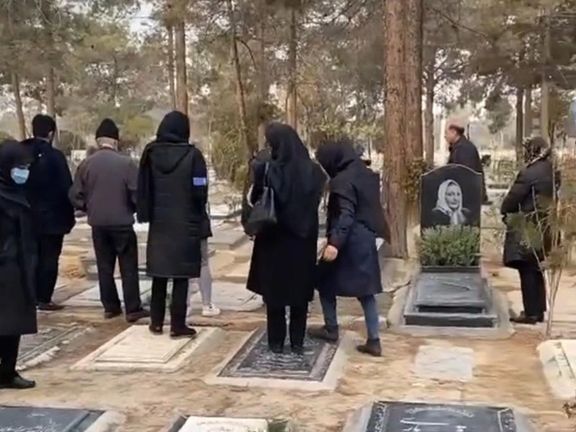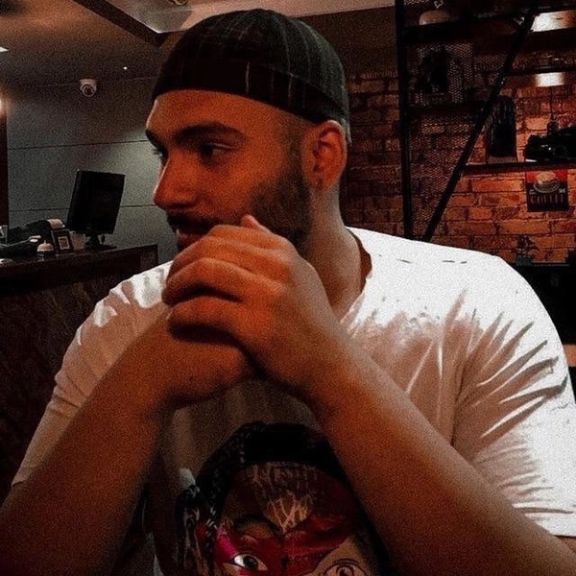Few Family Members Allowed At Executed Protester’s Secret Burial

As in many other previous cases, Iranian authorities Friday allowed only a handful of family members to attend Mohsen Shekari’s heavily guarded burial to prevent a possible protest.

As in many other previous cases, Iranian authorities Friday allowed only a handful of family members to attend Mohsen Shekari’s heavily guarded burial to prevent a possible protest.
A video posted on Twitter shows a few people quietly standing at his grave at Tehran’s Behesht Zahra Cemetery. Shekari, 23, was hanged Thursday morning after a hasty and unfair trial, which has sparked deep anger among Iranians.
Many believe he was hanged to instill fear among other protesters as his sentence for blocking a street and inflicting a minor injury on a paramilitary Basij member, was harsher than anyone could imagine.
Some people took to the street in his neighborhood Thursday evening and chanted “We will kill the one who killed our brother” and “Death to the Dictator.” People were indiscriminately tear-gassed and shot at with pellet guns whether they were on foot or in their cars, and even inside shopping arcades.
Anti-government protesters have planned further rallies on Saturday and Sunday in Iran and abroad in the memory of Shekari and other protesters killed by the security forces.

For the fear of funerary events turning into protests, authorities have “snatched” the bodies of several protesters from the morgue or hospital and buried them secretly in nearly three months since protests began following the death in custody of Mahsa Amini. In some cases, families have taken the bodies home for fear of being deprived of a proper burial at their preferred cemeteries.
In November, the mother of ten-year-old Kian Pirfalak who was shot by security forces in the family car in Izeh, a small city in Khuzestan Province, had to take her son’s body to a relative’s home from the hospital with the help of her relatives and cover it with ice until the next day when she could give him a proper burial. The event turned into a massive anti-government protest with the mother, Zaynab Molaei-Rad, making a fiery speech and accusing the Supreme Leader Ali Khamenei of being responsible for her son’s death.
For decades the Islamic Republic has “stolen bodies” or buried people in unknown graves to deny families a proper burial or conceal atrocities.
In 1988 in what came to be known as the massacre of political prisoners, thousands were tried summarily and executed within a few months. The bodies were buried in unmarked graves at Tehran’s Khavaran cemetery and elsewhere. Thousands of families are still searching for their loved ones’ graves including many minors.
The extent of “body snatching” has gone beyond those executed or killed in protests. In October, Sara Haghighatnejad had to go through massive paperwork to bring the body of her dissident journalist brother, Reza Haghighatnejad, home from Germany where he died of cancer only to see the body snatched by security forces at Shiraz Airport. The family were then left in the dark for four days before they found out the body had been secretly buried, not at their family cemetery in his hometown, but in a remote village in their absence.